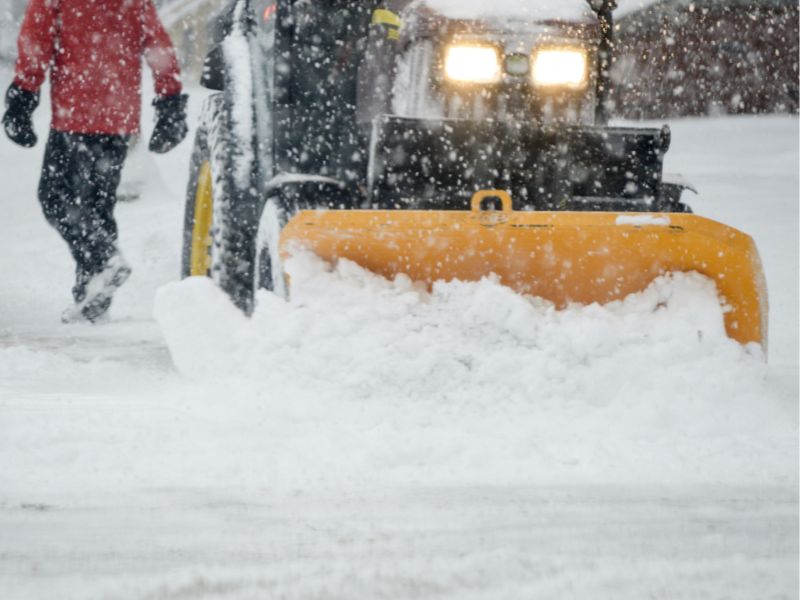With dangerously cold temperatures and a major winter storm expected across the DC region, families are being urged to prepare now. The National Weather Service has issued a cold weather advisory and a winter storm watch, warning of wind chills as low as 10 below zero, along with heavy snow, sleet, freezing rain, and the potential for widespread power outages through the weekend and into early next week. Travel could become nearly impossible, and prolonged exposure to the cold increases the risk of hypothermia and home safety hazards.
Winter storms and power outages can arrive quickly and disrupt daily routines with little warning. To help families prepare and stay safe, Washington Parent has compiled guidance from trusted sources including the National Weather Service, the Centers for Disease Control and Prevention, the American Red Cross, FEMA, the Environmental Protection Agency, and the U.S. Fire Administration. The information focuses on preventing fires, protecting indoor air quality, and safely managing heat, power, lighting, water, and cooking during outages to help keep children and families safe before severe weather strikes.
Your biggest safety precautions have to do with that indoor air quality, but also with fire. Home fires are common each winter when trying to stay warm and keep homes lit during power outages.
Home maintenance is a critical part of winter storm preparedness. One of the most important things to do on an ongoing basis is to make sure all alarms (carbon monoxide – CO –and smoke alarms are a MUST), generators, heating and cooking appliances, plumbing, etc. are certified and well-maintained. Don’t wait till meteorologists start predicting our first big winter storm and everyone’s running to the grocery stores to stock up on toilet paper – start planning now to keep your kids and family safe!
Safely Provide Power for Lighting, Cooking and Heating
Generators
During power outages, portable generators can be used to help temporarily restore power to a few key appliances such as refrigerators and lights. Generators should be located at least 20 feet from any window, door or vent and in a space where rain and snow will not reach them. Never use inside homes, garages, crawlspaces, sheds or similar areas. Deadly levels of carbon monoxide can quickly build up in these areas and can linger for hours, even after the generator has shut off.
Do not use generators (or appliances) if they are wet. Plug in generators (and appliances) using individual heavy-duty, outdoor-rated extension cords.
Portable Generators (Powered by Fuel):
Most portable generators are powered by fuels such as gasoline, natural gas or kerosene. If they are not used correctly, these generators can be hazardous because they give off toxic fumes, killing you in a matter of minutes if you breathe them in.
- Do not store gasoline indoors where the fumes could ignite.
- Only use outside and far away from buildings.
- Do not use under any of the following conditions: inside your house or garage; on balconies or near doors, vents or windows; or near where you or your children are sleeping.
Portable Generators Powered by Batteries or Solar Power Stations:
Battery powered generators or power stations are becoming more widely available. Some of them can be connected to solar panels for recharging. They can be a practical choice to power small appliances, lights and fans during a power outage. They are often less powerful than traditional gas-powered generators; however, they do not generate toxic fumes, and so they can be used more places.
Heating
Have your heating system serviced by a qualified technician every year. Use only the type of fuel your heater is designed to use—don’t substitute. When using heat from a fireplace, wood stove, space heater, etc., use fire safeguards and properly ventilate to the outside so they do not leak gas from the flue or exhaust into the indoor air space. If you have a gas furnace, make sure it is not blocked by a snowdrift as soon as it’s safe to go out. If you have an upstairs gas furnace which vents out the roof, you may need to turn off the upstairs unit until the snow melts off your roof.
If Your Heat Goes Out:
- Close off unneeded rooms to avoid wasting heat.
- Avoid unnecessarily opening doors or windows.
- Stuff towels or rags in cracks under doors.
- Open window drapes, blinds and shades during the day to help warm the indoor air and close them at night to help retain the heat.
- Have extra blankets, sleeping bags and warm winter coats on hand.
- Wear layers of loose-fitting, lightweight, warm clothing. Remove layers to avoid overheating, perspiration and subsequent chill.
Portable Space Heaters or Kerosene Heaters:
- Use electric space heaters with automatic shut-off switches and non-glowing elements.
- Keep heaters at least 3 feet away from flammable drapes, furniture or bedding.
- Never cover your space heater or place it on top of furniture or near water.
- Never leave children unattended near a space heater.
- Make sure that the cord of an electric space heater is not a tripping hazard, but don’t run it under carpets or rugs.
- Avoid using extension cords to plug in your space heater.
- If your space heater has a damaged electrical cord or produces sparks, do not use it.
Combustion Appliances:
During a power outage, do not try to heat your home by using combustion appliances including gas stoves or ovens, barbeque grills or dryers. Never operate any gas-burning heater or other appliance in a poorly vented or closed room, or where you are sleeping.
Fireplaces
Follow these safety precautions if using a vented fireplace for heating.
- Have flues and chimneys inspected before each heating season for leakage and blockage by creosote or debris.
- Have plenty of dry firewood on hand for wood fireplace.
- Open the fireplace damper before lighting the fire and keep it open until the ashes are cool. Never close the damper or go to bed if the ashes are still warm. An open damper may help prevent buildup of poisonous gases inside your home.
- Never use gasoline, charcoal lighter fluid or other fuel to light or relight a fire because the vapors can explode. Never keep flammable fuels or materials near a fire. Never store flammable liquids in your home.
- Never use charcoal in a fireplace because there is a risk of carbon monoxide poisoning.
- Keep a screen or glass enclosure around a fireplace to prevent sparks or embers from igniting flammable materials.
- Burn only dry, seasoned wood and maintain a hot fire. Do not burn paper in a fireplace.
Vehicles
Do not run a car or truck inside a garage attached to your house, even if you leave the door open.
Cooking
Do not use unvented combustion appliances indoors such as barbecues, hibachis or camp stoves. Never burn charcoal grills indoors, even with ventilation. Charcoal also quickly produces deadly CO. Unvented combustion appliances should not be used to cook indoors or for any other indoor use. You can use a vented fireplace or a vented wood stove or another vented fuel burning stove if it is set up for cooking. (Make sure your old wood stove is certified.) When using cooking appliances outdoors, do so at a safe distance away from your home’s doors, windows and any air intakes for your home’s HVAC system.
Lighting
Use flashlights or battery powered lanterns if available. If you use candles, make sure the area is ventilated since candles emit combustion products and, if left unattended, can be a fire hazard. If available, use battery-powered flashlights or lanterns instead of candles. Candles can lead to house fires. If you do use candles, never leave lit candles unattended.
Water Supply
Extreme cold can cause water pipes in your home to freeze and sometimes rupture or break. When you are expecting very cold or freezing temperatures:
- Leave all water taps slightly open so they drip continuously.
- Keep the temperature inside your home warm.Allow heated air to reach pipes. For example, open cabinet doors beneath the kitchen and bathroom sinks.
- If your pipes do freeze, do not thaw them with a torch. Thaw the pipes slowly with warm air from an electric hair dryer.
- If you cannot thaw your pipes, or the pipes have broken open, use bottled water or get water from a neighbor’s home.
- As an emergency measure, if no other water is available, snow can be melted for water. Bringing water to a rolling boil for one minute will kill most germs but won’t get rid of chemicals sometimes found in snow.
Keeping kids safe at home during winter storm emergencies
Keeping Children Safe
Children are more vulnerable in emergencies for many reasons. For example, they breathe in more air for their size than adults. They absorb harmful materials from the air more readily. They may not be able to communicate their symptoms or feelings of illness. They might not be able to move as quickly as an adult.
- Take the mystery out of fire play by teaching children that fire is a tool, not a toy.
- During a power outage, as always, store matches and lighters out of children’s reach and sight, preferably in a locked cabinet.
- Never leave children unattended near operating stoves or burning candles, even for a short time.
Winter storms and power outages can be especially scary and stressful if you’re pregnant or have recently given birth. The CDC has special tips for you.
- Make sure babies stay warm. Infants less than one year old should never sleep in a cold room because they lose body heat more easily than adults. Follow these tips to keep your baby safe and warm during the extreme cold:
- Remove any pillows or other soft bedding. These can increase the risk of smothering and sudden infant death syndrome (SIDS).
- Dress babies in warmer clothing such as footed pajamas, one-piece wearable blankets or sleep sacks.
- In an emergency, you can keep your baby warm using your own body heat. If you must sleep, take precautions to prevent rolling on or smothering your baby.
- Emergency and safety planning for children with special healthcare needs is especially critical. The CDC has several extremely helpful resources including checklists. The American Academy of Pediatrics has a great webpage dedicated to this with an extensive list of other sources for related information.



